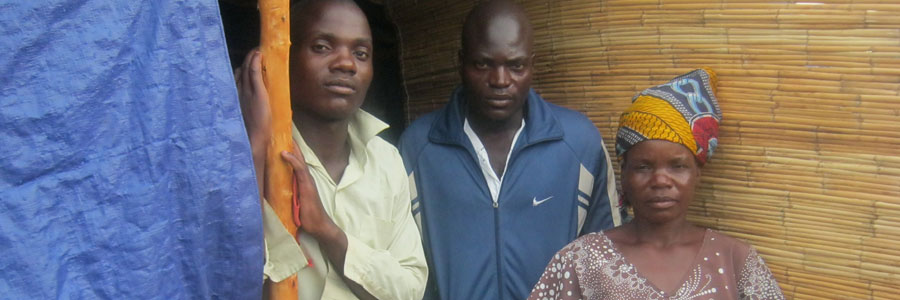
In the midst of calamity and chaos, many crumble and lose hope along with their dreams, but victims of the infamous Tokwe-Mukosi floods in Masvingo Province have made peace with their horrors and are eager to put it all behind and start again.
By Phyllis Mbanje
Their story has not been rosy, the journey has been treacherous and often discouraging. Aid has been slowly trickling in and the impact is only being felt and witnessed now.
Approaching Chingwizi, nestled in Nuanetsi range deep in Mwenezi along a bumpy dirt road, small structures can be seen dotted all over.
Each homestead still has one or two tents that used to be “home” during their stay in the transit camp.
Wilted crops fill up their small plots but they have not given up on it entirely.
“We might harvest something because some of the crops look healthy enough, like this one,” says Joel Matadzeose from Vhomo area, pointing with his finger.
He is optimistic that his crop will not be a write-off and he can salvage something to feed his family of six until the next farming season.
- Chamisa under fire over US$120K donation
- Mavhunga puts DeMbare into Chibuku quarterfinals
- Pension funds bet on Cabora Bassa oilfields
- Councils defy govt fire tender directive
Keep Reading
Behind his small dwellings is a small nutrition garden that he waters religiously every day.
“We were taught that we should have these so that our children grow up healthy and strong,” he explains.
Community health clubs like Hurudziro have been instrumental in helping the community build pit latrines, dig rubbish pits and promote hand-washing.
Lack of potable water has been an issue in the area, with fears that there could be an outbreak of water-borne disease like cholera.
“But there has not been a single case of cholera from Chingwizi,” said Unicef representative Jane Muita during a recent tour of the area.
Actually, cases of diarrhoea have been going down from an all time high of 83 in November last year to only 33 in January this year.
“Communities have really been instrumental in the turnaround of their circumstances, especially the health aspect,” said Jesca Keche, the Mwenezi district environmental health officer.
Clubs like Hurudziro have gone on an overdrive campaign to encourage zero tolerance to open defecation.
“Over 1 000 pit latrines have been dug and outside each toilet there is a plastic container filled with water and a tablet of soap for hand-washing,” said Keche.
Following a grant from the Japanese government of over $1 million, access to social services has greatly improved.
The five schools which cater for the area (four primary schools and one secondary school) have an enrollment of over 3 000 and counting.
The provincial education officer Zedius Chitiga said the increase in enrollment of 14,4% was remarkable and this was due to improved learning materials. The pupils used to attend lessons in the open and under trees.
“The Japanese grant made it possible for us to buy more tents which we now use as classrooms and teachers’ accommodation,” said Chitiga.
The teachers too have been given a special incentive which allows them to further their studies for free. This is meant to motivate them and encourage them to turn around the education system, which still lags behind.
Nine-year-old Kumbirai wants to be a teacher when she grows up. Shy and a bit withdrawn, she shares her dream of being a teacher with visitors, while staring on the floor.
She is wearing a uniform from Hallingbury School in Harare. She is not the only one. The whole class has a rainbow of uniforms. One or two from Belvedere Primary, another from Avondale Primary School. These have obviously been donated, discarded by their owners who no longer need them but worn with pride by the pupils of Chingwizi.
However, there are still challenges like furniture for the ECD classes, more learning material and better facilities.
“The schools have no buses and so cannot interact with other schools be it in sport or academic. This is critical because they are being left behind,” said Chitiga.
The looming drought is also a matter to contend with considering that the area is dry and unsuitable for farming.
As the sun sets on Chingwizi and families huddle together in their small huts, the darkness that engulfs the area is not reflective of their future for they still carry the light of their dreams and will not let any situation snuff it out. Little Kumbirai will have that dream again when she is standing in front of a classroom, somewhere better, far and safe.










